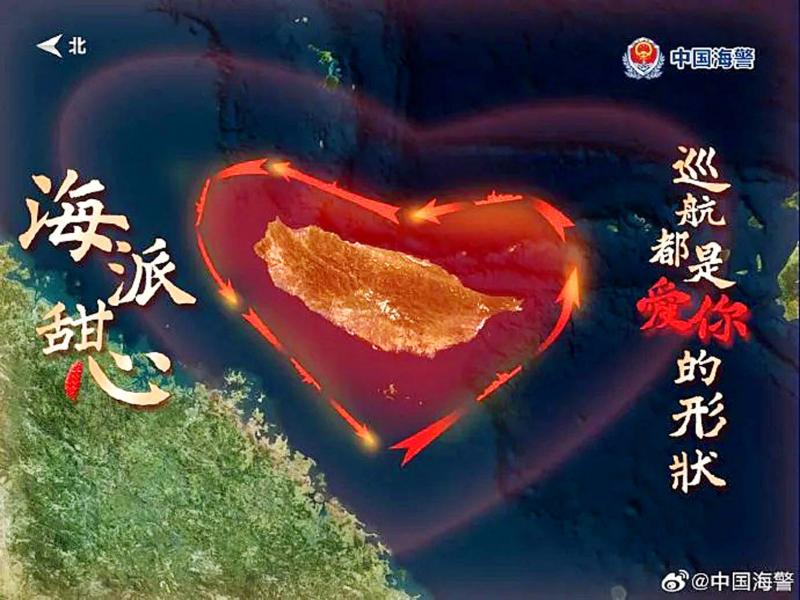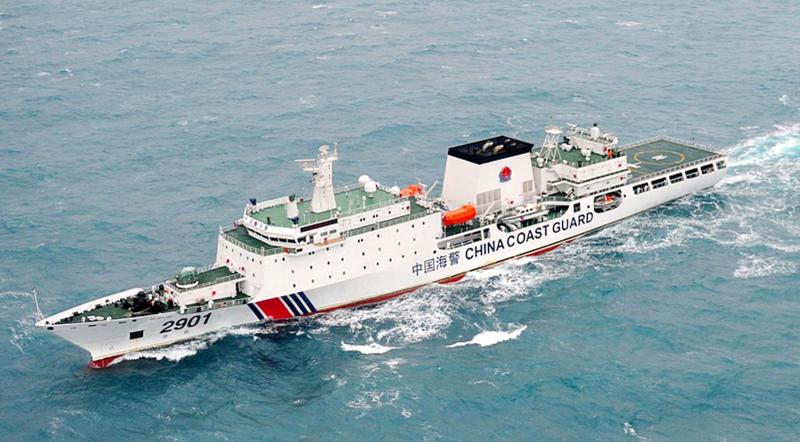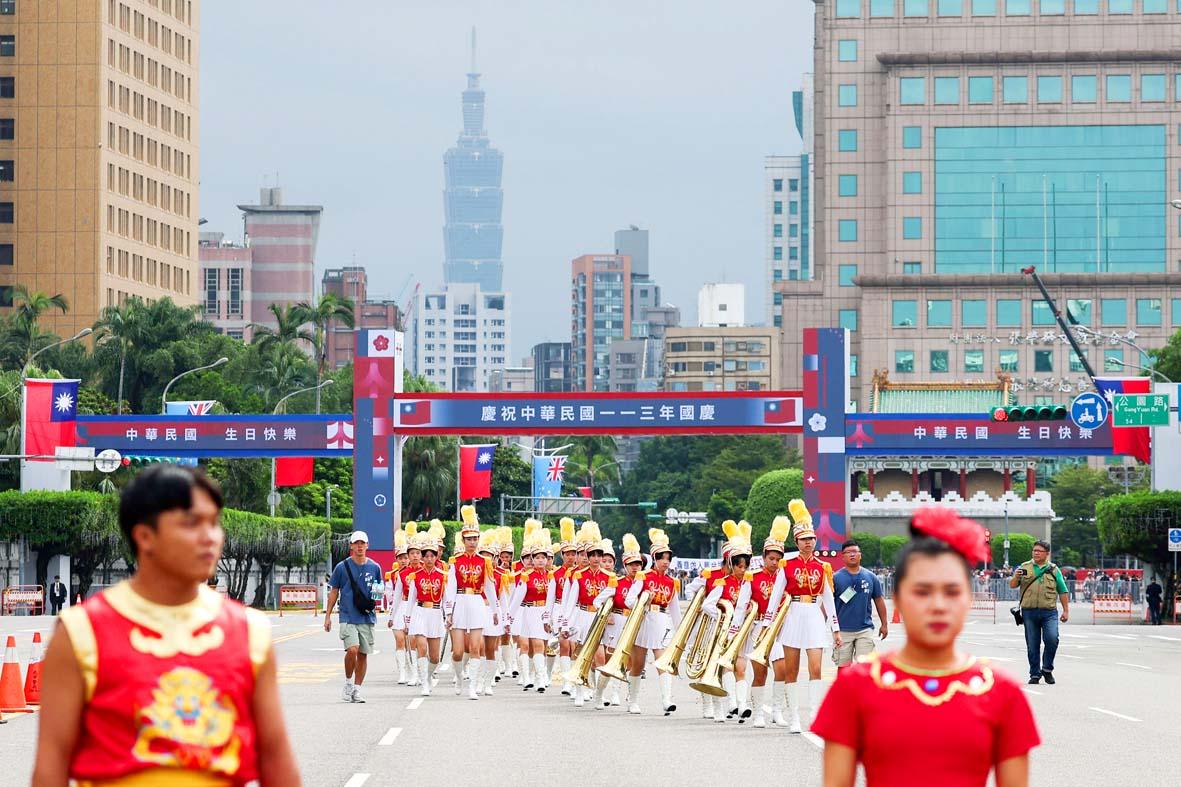A Chinese propaganda image dispersed during Monday’s military drills around Taiwan was supposed to send a positive message to the island’s people, but instead has been decried as weird, creepy and akin to “sexual harassment.”
On Monday China targeted Taiwan with major military exercises, surrounding its main island and outer territories with planes and ships to practice a blockade and attack. Alongside a record number of warplanes, dozens of navy and coast guard vessels, and cyber-attacks, China also launched a torrent of propaganda.
Among video montages of soldiers rushing towards troop carriers, photos of captains staring through binoculars from the deck of a warship and breathless editorials about “inevitable reunification,” one piece of media stood out: a love heart.

Photo taken from Weibo
The illustration, widely shared online, depicted a satellite image of Taiwan’s main island, and a line of arrows tracking around it in the shape of a heart. Accompanying script — in the traditional Chinese characters used by Taiwan — read: “Hi my sweetheart” and “The patrol is in the shape of loving you.”
The image came from China’s coast guard, which ran what it called “law enforcement patrols” around Taiwan during Monday’s drills.
Taiwan’s coast guard officials decried the image as Chinese cognitive warfare and harassment. But it didn’t appear to have the desired impact on the Taiwanese population.

Photo taken from Weibo
In local news the image prompted headlines. On social media it drew mostly ridicule and anger. People found the image “creepy,” and comment sections filled with vomit-emojis. Some likened the sentiment expressed to an abusive partner, while one newspaper called it “sexual harassment.”
Many were also perplexed by what appeared to be a reference to a 15-year-old Taiwanese TV drama, Hi My Sweetheart (海派甜心), long off the air. Some people surmised the reference was supposed to remind people of the show’s star, the local actor Rainie Yang (楊丞琳), who has faced criticism in Taiwan for saying she is Chinese and for posting pro-China content online.
Past propaganda efforts have included crude animations of missiles striking major cities in Taiwan. In August 2022, during drills launched in retaliation for a visit by the US speaker, Nancy Pelosi, China was accused of hacking into monitors at Taiwanese train stations and convenience stores to display messages disparaging her.

Photo: Reuters

On April 26, The Lancet published a letter from two doctors at Taichung-based China Medical University Hospital (CMUH) warning that “Taiwan’s Health Care System is on the Brink of Collapse.” The authors said that “Years of policy inaction and mismanagement of resources have led to the National Health Insurance system operating under unsustainable conditions.” The pushback was immediate. Errors in the paper were quickly identified and publicized, to discredit the authors (the hospital apologized). CNA reported that CMUH said the letter described Taiwan in 2021 as having 62 nurses per 10,000 people, when the correct number was 78 nurses per 10,000

As we live longer, our risk of cognitive impairment is increasing. How can we delay the onset of symptoms? Do we have to give up every indulgence or can small changes make a difference? We asked neurologists for tips on how to keep our brains healthy for life. TAKE CARE OF YOUR HEALTH “All of the sensible things that apply to bodily health apply to brain health,” says Suzanne O’Sullivan, a consultant in neurology at the National Hospital for Neurology and Neurosurgery in London, and the author of The Age of Diagnosis. “When you’re 20, you can get away with absolute

May 5 to May 11 What started out as friction between Taiwanese students at Taichung First High School and a Japanese head cook escalated dramatically over the first two weeks of May 1927. It began on April 30 when the cook’s wife knew that lotus starch used in that night’s dinner had rat feces in it, but failed to inform staff until the meal was already prepared. The students believed that her silence was intentional, and filed a complaint. The school’s Japanese administrators sided with the cook’s family, dismissing the students as troublemakers and clamping down on their freedoms — with

As Donald Trump’s executive order in March led to the shuttering of Voice of America (VOA) — the global broadcaster whose roots date back to the fight against Nazi propaganda — he quickly attracted support from figures not used to aligning themselves with any US administration. Trump had ordered the US Agency for Global Media, the federal agency that funds VOA and other groups promoting independent journalism overseas, to be “eliminated to the maximum extent consistent with applicable law.” The decision suddenly halted programming in 49 languages to more than 425 million people. In Moscow, Margarita Simonyan, the hardline editor-in-chief of the